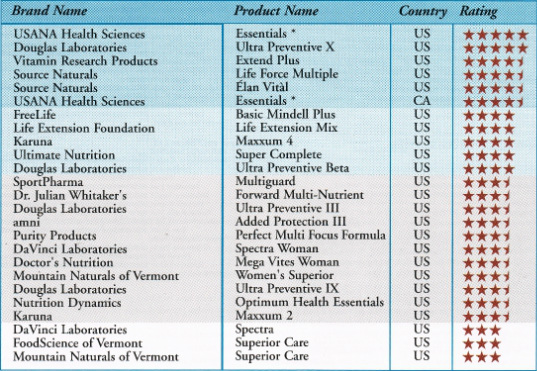Food Grade -v- Pharmaceutical Grade
Nutritional Supplements
What is the difference between food grade and pharmacuetical grade supplements? The difference is like coal and diamonds.
Pharmaceutical grade means that the product has been manufactured under GMP (Good Manufacturing Practices) conditions and is pure, safe and reliable. Under GMP every step of the process is followed using established procedures to assure the best quality possible.
This includes training, equipment, raw materials, and facilities. Processing and manufacturing can be traced back to the date, time, lot number, and equipment used.
Food grade nutritional supplements may or may not follow good manufacturing practices and may or may not contain what is actually listed on the label. The FDA allows questionable fillers and binders such as; cork by products, chemical dyes, sodium benzoate, dextrose, and propylene glycol to name a few.
In most cases, Impure ingredients are used by many companies. The FDA does not require manufacturers to list these ingredients on the labels if they are not added when making the final product.
Many times the raw materials may contain only 90% or less of the listed ingredients along with 10% or more of fillers, such as, corn starch and lactose. Lactose and corn are known allergens for some people.
Surprisingly these ingredients are legal, but what are the nutritional benefits?
Reports have indicated that some of these ingredients can be toxic at certain levels with prolong use.
There are basically three different grades of raw materials used in products, they are:
Pharmaceutical Grade - meets pharmaceutical standards
Food Grade - meets standards set for human consumption
Feed Grade - meets standards set for animal consumption
Currently, the Food and Drug Administration has not finalized Good Manufacturing Practices (GMP) for dietary supplements, as they are required to do under the ,Diet<3l5Y.5upplement Health and Education Act. Rather, Congress has initially stated that dietary supplement GMP should be modeled after foods.
Because of this statement, many supplement manufacturers have chosen to follow GMP for foods.
However, there are a few nutritional manufacturing companies that voluntarily follow the GMP for pharmaceuticals as the basis for its quality assurance program in the manufacturing of all of its products, meaning the company treats nutritional supplements with the same care that goes into the manufacturing of pharmaceutical products.
When choosing a company to purchase your nutritional supplements from, you want a company that provides pharmaceutical grade nutritional supplements using good manufacturing practices and uses the purist ingredients available and that have the least hypoallergenic effects on the consumer.
This type of company will insure that what is printed on the label is actually in the bottle. Their processing facilities are state of the art and well maintained and controlled for cleanliness and are not shy to allow the public to inspect their facilities.
Your chosen company should have a potency guarantee and will stand behind it. This company may be certified by quality assurance agencies like the NSF, which is the Public Health and Safety Company.
The NSF helps protect the consumer by certifying products and writing standards for food, water and consumer goods.
There are several criteria by which pharmaceutical grade are judged. The product must be in excess of 99% purity with no binders, fillers, excipients, dyes, or unknown substances.
Choose wisely. Your health depends on it.
P.S. If you want to know which pharmaceutical grade company I use that has the high quality traits listed above, sign up for my free news letter and I will send you the information. You will love their products.
 Top Rated Products
Top Rated Products
TOP RATED PRODUCTS
Over 1,000 reviewed - over 500 Compared
We examined over 1,000 American and Canadian nutritional products in writing this Comparative Guide. From this, 508 qualifying products, representing the best in the line-up of 213 companies, were further evaluated and compared to the selected nutritional standards, according to nutrient content and daily intake. Graphical comparisons were completed on two hundred and thirty-two (232) finalists, representing the top-rated product(s) from each manufacturer. (Some companies have more than one product represented, if they market in both Canada and the United States.)
The table below is a list of the top-rated twenty-five nutritional supplements in the line-up of over 500 products assessed in this comparative guide. The Five-Star Rating is based on the percent-age score, which has a maximum value of 100%. A score of 80 percent or above is exceptionally strong and is evidence of outstanding nutritional merit, based on the assessment criteria – a commendable feat, indeed. Fewer than 0.8 percent of the 1000+products initially reviewed were able to surpass this benchmark.
All of the twenty-five finalists exhibit strong scores. However, only those products with scores exceeding 90% earn their appointment as our Top Products Overall. The following chapter provides detailed information on these six outstanding nutritional products and the four companies that manufacture or distribute them.
For a complete listing of all products and their Final Product Scores, please refer to Appendices A and B.
Information and statements regarding dietary and nutritional supplements have not been evaluated by the Food and Drug Administration and are not intended to diagnose, treat, cure, or prevent any disease.
